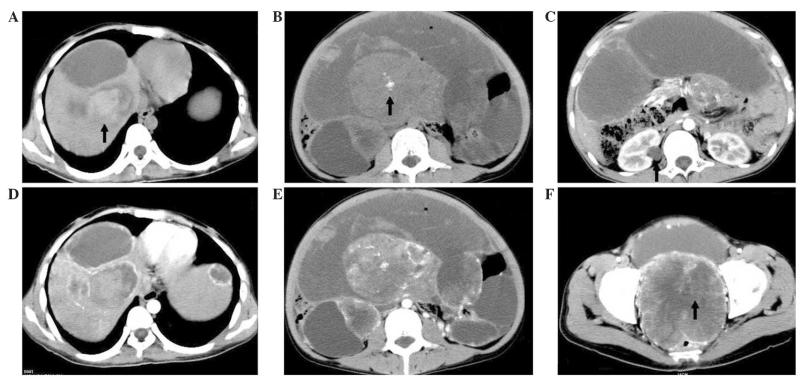Desmoplastic small round cell tumor (DSRCT) is a rare and aggressive form of soft tissue sarcoma predominantly affecting young males. Characterized by multiple tumor masses within the abdominal cavity, this malignancy poses significant treatment challenges due to its rapid progression and late-stage diagnosis in many cases. Over the past decade, scientific advancements and multimodal treatment approaches have considerably evolved, offering new hope for improved patient outcomes. Understanding these therapeutic options is essential for patients, caregivers, and healthcare professionals navigating this complex disease landscape.
Comprehensive Overview of Current Treatments for Desmoplastic Small Round Cell Tumor Treatment
Desmoplastic Small Round Cell Tumor Treatment typically involves a combination of surgery, chemotherapy, and radiation therapy, each playing a critical role in managing tumor burden and attempting curative outcomes. Surgery aims to remove as much of the tumor mass as possible, often requiring aggressive cytoreduction due to the widespread nature of the tumor nodules in the peritoneal cavity. Complete surgical resection remains a cornerstone but is frequently challenging due to the tumor’s infiltration into vital organs and the presence of metastases.
Chemotherapy protocols for DSRCT usually involve high-dose, multi-agent regimens. Common chemotherapeutic agents include cyclophosphamide, doxorubicin, vincristine, ifosfamide, and etoposide. These drugs work synergistically to reduce tumor size and address micrometastatic disease. Neoadjuvant chemotherapy – administered prior to surgery – has been widely utilized to improve the feasibility of surgical resection and reduce tumor volume. Adjuvant chemotherapy continues post-surgery to target residual cancer cells and prevent relapse.
Radiation therapy serves as an important adjunct in controlling local tumor growth, particularly when surgical resection is incomplete or when residual microscopic disease is suspected. Intensity-modulated radiation therapy (IMRT) and whole abdominopelvic radiotherapy (WAP-RT) are among the advanced techniques employed to maximize tumor control while minimizing damage to surrounding healthy tissues.
Emerging Targeted Therapies and Immunotherapy in DSRCT Management
The rarity and biological complexity of DSRCT have driven research into novel therapies that go beyond conventional treatment paradigms. Advances in molecular profiling have revealed specific genetic abnormalities, such as the EWS-WT1 gene fusion, which plays a pivotal role in tumor development. Targeted therapies aim to exploit these molecular vulnerabilities, paving the way for treatments with potentially improved efficacy and reduced toxicity.
Experimental therapies currently under investigation include small molecule inhibitors, monoclonal antibodies, and immune checkpoint inhibitors. These emerging options focus on disrupting tumor cell growth pathways, enhancing the host immune response, or combining with standard chemotherapy to overcome drug resistance. Although clinical trials in this rare tumor type are limited, they represent a growing field of hope for more personalized and effective treatment regimens.
Evaluating the Commercial Potential of New Treatments in Rare Cancer Markets
The commercial landscape for desmoplastic small round cell tumor therapies represents a distinct category within the oncology market due to its rarity and high unmet medical need. Despite the small patient population, the demand for more effective and less toxic treatments creates significant opportunities for pharmaceutical development and commercialization.
Companies entering this market focus on strategic collaborations, orphan drug designations, and fast-track regulatory approvals to optimize their product life cycles. The high cost of innovative therapies often necessitates value-based pricing strategies and patient access programs to ensure availability to those affected.
Market dynamics are additionally influenced by diagnostic advancements allowing earlier detection and stratification of patients likely to benefit from specific treatments. As research progresses, integrating novel agents with conventional multimodal therapy may redefine clinical practice and improve survival outcomes, further expanding commercial prospects.
Understanding Multidisciplinary Care Models in DSRCT Patient Management
Effective treatment of desmoplastic small round cell tumor requires a coordinated, multidisciplinary approach involving surgical oncologists, medical oncologists, radiation oncologists, pathologists, and supportive care teams. This collaboration ensures individualized treatment planning, optimized sequencing of therapeutic modalities, and comprehensive symptom management.
Patient monitoring includes regular imaging and laboratory tests to assess response and identify recurrence early. Additionally, addressing quality of life and psychosocial support is critical given the aggressive nature of the disease and intensive treatment regimens.
Innovations in care delivery models, including clinical trial enrollment and personalized medicine initiatives, continue to enhance patient outcomes. Healthcare providers also increasingly rely on evidence synthesized from clinical research, treatment guidelines, and real-world data to refine management strategies.
Get This Report in Japanese Language -線維形成性小円形細胞腫瘍の治療
Get This Report in Korean Language -섬유성 소원형 세포 종양 치료
Read More Articles Related to this Industry –
Recent Developments in Active Pharmaceutical Ingredients Industry
Regulatory Standards for Active Pharmaceutical Ingredients: Ensuring Safety and Compliance
About Author:
Priya Pandey is a dynamic and passionate editor with over three years of expertise in content editing and proofreading. Holding a bachelor's degree in biotechnology, Priya has a knack for making the content engaging. Her diverse portfolio includes editing documents across different industries, including food and beverages, information and technology, healthcare, chemical and materials, etc. Priya's meticulous attention to detail and commitment to excellence make her an invaluable asset in the world of content creation and refinement.
(LinkedIn- https://www.linkedin.com/in/priya-pandey-8417a8173/)
